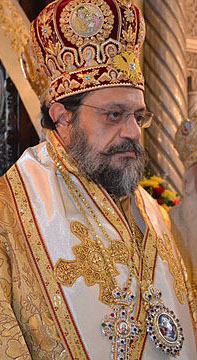Relations between the Orthodox Church and other Christian churches, on the basis of pan-orthodox decisions – 3
25 December 2015All the positions on the self-awareness of the Orthodox Church are important for its participation in bipartite talks and in the Ecumenical Movement, as it is known. They also form the theological foundation, while new paragraphs have been adopted which are very important and which confirm Pan-Orthodox positions that were either questioned or ignored in the past.
Thus:
a) Not only was the manner determined in which a local Church might withdraw unilaterally from any particular dialogue, but so also was the possibility of bringing the dialogue to a halt, changing its methodology, or re-evaluating it, should this prove necessary for serious reasons of an ecclesiological, canonical, pastoral or moral nature. This is described as a procedure requiring a Pan-Orthodox decision, starting with an initiative on the part of the Ecumenical Patriarch and then adopted, by ‘unanimous consent’, by the rest of the Orthodox Churches (§10).
b) The canonical criteria (canons 7 of the Second Ecumenical Synod and 95 of the Quinisext) were stated regarding the prospects of theological dialogues between the Orthodox Church and the other Christian Churches and Confessions (§20). This paragraph defines the limits which apply to the whole of the Orthodox Church in its dealings with the other Christian Churches and Confessions. Their existence was not questioned and, ‘by accommodation’, the fact and validity of their baptism was recognized, in accordance with the canonical tradition. Thus, the principle of ecclesiastical accommodation was reinforced as the expression of a charitable disposition on behalf of the Orthodox Church towards the other Christian Churches and Confessions and the principle of punctiliousness is weakened.
c) It was emphasized that ‘the Orthodox Church considers culpable any fracture of the unity of the Church by individuals or groups, with the excuse of observing or supposedly protecting pure Orthodoxy,’ because it is considered that observance of the genuine Orthodox faith is guaranteed only through the synodal system, which, in the Church has always been the final judge responsible for matters of faith (§22).This is a position which derives from the canonical tradition (canon 6 of the Second Ecumenical Synod) and from Patristic teaching (cf. Cyril of Alexandria, Epistles LXXII, PG 77, 344D-345B).
Following the above, it can be confirmed that the relations between the Orthodox Church and the other Christian Churches and Confessions, as these are defined and described in the text of the 5th Pre-Synod, Pan-Orthodox Conference (Chambésy, 10-17 October 2015), ratified by all the Orthodox, emphasize, support, cultivate and promote dialogue on the basis on the principles described. These have been stated continually by the tradition of the Original Church, believing that ‘when certain people differ and do not engage in dialogue, they think that the difference between them is great; but if they come together in dialogue and each side listens intelligently to what the other has to say, the difference between them will often be found to be small’[1].
We are therefore called upon to answer two questions:
a) Despite any problems there may be, does the future continuation of the bilateral theological dialogues mentioned above serve to further their initial aims?
b) Has anything positive emerged so far from the participation of the Orthodox Church in the contemporary ecumenical dialogue and in the bilateral theological discussions?
We are able give an affirmative answer: a) because of the opportunity offered to facilitate the influence of the Orthodox witness to the rest of the Christian world; and b) by the re-evaluation of many of the traditions of the West in the light of the Patristic tradition and the sacramental experience of the first thousand years of the common, historical life of the Church
[1] Mark of Ephesus Eugenicus, in Sylvestros Sytopoulos, Ἀπομνημονεύματα, v, 28, pubd. by. V. Laurent, Les «mémoires» du Grand Ecclésiarque de l’Eglise de Constantinople Sylvestre Syropoulos sur le Concile de Florence (1438-1439), vol. ix, Rome 1971, p. 282.
Paper delivered at the Symposium entitled: ‘Orthodoxy and the World II. Towards the Holy and Great Synod’, which was organized jointly by the Holy, Royal and Patriarchal Monastery of the Vlatades, the Patriarchal Institute of Patristic Studies and the Theological School of the Aristotle University of Thessaloniki. (Holy Monastery of the Vlatades, 3-5 December, 2015).







